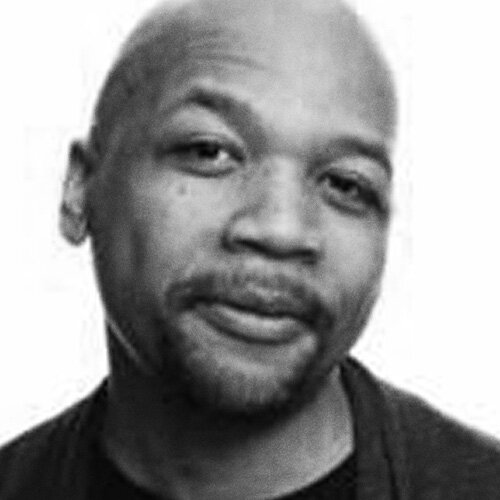The Guide to Evaluating Good Gigs from Bad Gigs Before You Are Stuck With Them
Beloved Contributors
Amazing Gigs Are the Ones...
....that allow dogs in the office.
.…where you learn something new everyday
....with coworkers so talented it’s actually intimidating
....that give you projects you can’t believe you made
Mistake Gigs Are the Ones...
…where you’re making something you have no control over
.…where you flinch every time your boss walks over
.…where invoices go months without being paid
.…where you have to pay for your own coffee.
What will your next gig be? Rewarding or regrettable? I think the answer to that question can be determined before you even show up to the job. While some gigs are destined to be nothing more than a paycheck, notice that I DID NOT talk about how much you get paid as a factor in how great a job is. Short term it might seem like as long as you’re getting paid it's all good. BUT, FOR THE SAME AMOUNT OF TIME AND EFFORT you could be growing your portfolio with good work. In the freelance world our portfolio is the ticket that lets us work exciting jobs, give ourselves a raise, work wherever we want, generally unlocking the freedom to live and charge what we please. It’s going to dictate how much fun you have as a freelancer. My advice is to handle job selection the way you’d handle your love life…you want to be getting some action but you don’t want to settle for the first person that talks to you.
Yes, sometimes bills need to be paid. If your life literally depends on it, you’re going to end up taking anything you can. But then there will be times where opportunity flows like wine at a bachelorette party. This article is your resource for deciding how to choose what's worth drinking.
The Criteria is Growth
….AKA a project that lets you try something you’ve never tried before.
….AKA a project lead by a team that is better than you.
….AKA something where you have enough creative control to treat it like a personal project while getting paid.
….AKA a job that ACTUALLY gets you closer towards reaching your goals.
Theo Daley, from Imaginary Forces once told me "If you pick projects that you want to do, then you’re getting paid to grow. It’s only when you aren’t fulfilled that you want to do something on the side.” Is this job going to get me closer to that goal? Or is it going to delay the march towards greatness for a quickly spent paycheck? You have the freedom to choose this as a freelancer and your choices ripple forward to affect the jobs you’ll take next. So how do you tell what kinds of jobs are which?
What a Mistake Gig Feels Like:
When I got the initial hit on Working Not Working to work at a certain big name company I was excited. I humble bragged about it all week in casual conversation. In the first hour of showing up to the gig they told me the work they brought me in for was going to play during a major television event that was happening at the end of my gig. If you were in my shoes you wouldn’t have been able to stay humble about it either. This seemed like it was going to launch my career into exciting and lucrative places. Well... over the course of the first week my high expectations were smashed repeatedly against a rock to the point where they were catatonic and waiting for the release of death. The project I was working on required the skill set of an animator with 1-2 weeks of After Effects experience. The design work was locked in (and boring) and the illusion of freedom to animate it as I pleased quickly evaporated. Originally I developed two versions, one was the one they asked for and a parallel second one where I tried to show them what it could look like it if they let me do my job. This second version not only received no feedback from anyone important but quickly became a personal project with no chance of seeing the light of day. The version they wanted took about an hour to create. For the rest of the two weeks I was booked, I had nothing to do but occasionally spend a few minutes re-timing it to the newest edit. Quickly my enthusiasm at making my television debut became shame and I’d wished I hadn’t even humble bragged about it. By the time it aired, I didn’t feel proud, I felt like I’d help make something that I didn’t own or feel a part of.
What an Amazing Gig Feels Like:
I got the news: The quick 3D model I had made for a pitch project last week was officially being used in the final animation! Quickly, I had to take what I had made and bring it to the next level. The model eventually became good enough to be handed off to the team of animators who quickly made it do magical things. As the modeling needs leveled off at some point and the team was satisfied, I scrambled to assist on making X-Particles look (literally) like magic. Working with more experienced co-workers, particles did in fact become magic. NEXT I got to assist on animation, getting feedback from a more senior creative who showed me what would make it much better. At this point I was utterly exhausted from all-nighters and late-nighters blurring into one but we were left with something that we all loved. This project upped my game in at least 3 different fields, let me work with people who were vastly superior to me in talent and gave me a showpiece portfolio piece for a major client, giving me access to a whole new realm of clients from that point on.
Minimum Information We Need to Make a Good Decision
From my experience most of the time you’re not sure what you’re getting into the first day of a project. You read the short list of bullet points they emailed to you the week before and now you’re here on the first day wearing a collared shirt in the off-chance that people are dressed professionally. You have no without any idea what the next few days have in store for you. If you read to the end of this I promise on that first day you’ll feel much more comfortable.
Before accepting a gig we want to ask questions. To ensure that I came up with a list of questions that would cover all bases, I reached out to Creative Circle. They are a hiring agency I’ve worked with in the past who happen to get thousands of gigs a week. I figured if anyone could help me understand the lifecycle of a gig it was the people who deal with them on a daily basis. I interviewed two amazing employees of theirs and this is what they said. Shout out to Lauren Scottow and Aislinn Haggerty. The list below is the MINIMUM amount of information they ask before a vendor can list post a gig to Creative Circle.
I asked them flat out if they thought it would be too much to send this exact list of questions to clients as an individual. They replied that sending these questions was "totally okay, but a lot of clients won’t have the answers to those questions. It depends who you are talking to. So if you're talking to a HR rep versus a creative director, the creative director will describe more the style of the visuals versus the facts, etc.” So feel more than welcome to send this list to your clients... just don’t expect to always get a full list of answers back.
Questions to Ask the Client:
Start Date
Duration
Budget / Compensation
Deliverables
Software Required
On-Site Versus Off-Site
Do they need a laptop or not?
Samples
(or can they provide a style that they are trying to emulate or at least the category or client)Payment Terms
(My addition: how long it will take for you to get paid)
The Most Useful Questions of All for Finding Growth Gigs
Who is the team? What is the structure of that team? These deceptively simple questions should tell us the most important information we want to know: what amount of resources does this company put into design? Not every company you work for will even have a design department. This questions tells us if that's the case. If the project is fully staffed with 3-4 designers and an art director, this question tells us that is the case. The bigger the team you are working on, the more talent and passion are going into this project, increasing the odds that it will be one for the books. At the least you'll be learning and picking up tricks from a whole team of people. This question tells us how much of a priority design is for the company and what kind of talent we can expect to work with.
The Proof is in the Portfolio
Forgive the horrible pun. The best way I’ve found to evaluate whether a job is worth it is just to look at what they’ve made already and assume you’ll be making more of that. Always look at samples of what that studio has done before to see what their taste is like. Big companies also often have multiple tiers of work. The work that impressed you could've been done by multiple different teams, studios, or freelancers who have no relationship to the team you’re working on. For example: I just worked at ******* and was excited about the work they do. It turns out that all the work in-house was mundane (LINEAR key frames ugh) Unsurprisingly all the cool shit was done by Elastic in California.
The Person You're Talking To Won’t Always Have the Information You Need..Don’t Give Up
"A lot of clients keep their information close to their chest. “They don’t always tell me everything.”Rob Hoffman
In my quest to find the most useful questions, I also reached out to Robert Hoffman, of Atrium Staffing, another hiring company that’s been good to me. He agreed that a lot of the time, clients are vague. Sometimes really vague. A great example came up while I was writing this article. Rob had presented me with a gig that sounded potentially “growthy” but I pressed him for more. I already had 2 other gigs I was working on at the moment. If I took this job I wanted to make sure it was something that would be potentially portfolio-worthy.
His response? "It’s a car commercial.” That’s it. That’s all he told me.“Smartly realizing that I needed more information, he got me in direct contact with the client who posted the gig so that I could ask them whatever I needed to. This worked wonders for getting all my questions answered, and quickly it became clear that this was a job I definitely wanted to accept. If the initial person who contacts you doesn’t know the answers you need, ask to talk to someone who would. For example, if the producer doesn’t know what visual style the project is targeting, then ask for the art director. He’ll know. Ask for WHOEVER it is that would be most likely to have your answers.
List of Likely People You’ll Talk To:
Art Directors: Likely to talk about design, style, software needs, team structure.
Producers: Likely to talk about budget, timeframes, team structure, software requirements.
HR Rep: Feelings? Not sure honestly
But Is There Anything Not Okay to Ask?
When asked the above question, Laura replied, “There aren’t any questions that can disqualify you, more so just overpromising or overselling yourself to a point where you can’t deliver. Being transparent is incredibly important. One of the biggest pet peeves is when candidates aren’t 100% honest with their schedule/ bandwidth/ skill set and they oversell themselves a bit. If a client is asking for someone who has stellar After Effects skills and you’re mediocre you’re going to ruin that relationship.“
Signs That Your Next Boss Might Be a Jerk
"From experience over time you can kind of sniff out in the very beginning if someone is going to be an asshole." -Rob Hoffman
Abusing the Hold System: "If they put you on hold and don’t release you (or you never hear from them) then that’s a huge red flag. They don’t have the decency to tell you the job went away."
Low Rates: "The lower the rate and the more responsibilities they pile on you, they’re cutting corners left and right and you’re probably walking into a shit show. "When they’re lowballing you on rate and they’re looking for something for a really low number then it's usually a warning sign that something is remiss."
W9 Forms Instead of Payroll: "Someone who doesn’t run you through payroll, it's another potential warning sign. You’re probably going to be chasing your check. If you’re on payroll you know you’ll get paid on time. No big company will hire you as an independent contractor and you’re coming to work on site and they’re paying you as a 99 then it's another potential red flag that they’re cutting corners. It doesn't automatically mean they’re bad, that you’ll get paid late, but your radar should be up. If you’re doing the W9 route then you should be asking when you can expect to get paid.” You’re working on one job, on to the next job, and you look back and ask “shit did I ever get paid for that job?"
The Most Important Questions of All: Questions to Ask Yourself
How badly do I need this money?
Is this job going to get me closer to my goals? Or is it going to delay my march forward towards greatness for a quickly spent paycheck?
Even if this job isn’t good is there a relationship here that I think could one day get me work I want?
Is this gig worth being taken off the market for the amount of time they need me?
What makes a job exciting is a very subjective and personal question. Every freelancer should have a mix of bill payers and portfolio builders. You’re never going to find everything in one job. That’s not possible. But the bottom line of this post is simple: find jobs that excite you. If you're excited about it you'll grow, plain and simple.
So, Which Kind of Gig Am I Headed Towards?
1. Growth
Theo Daley said "he wants at least 4 projects for the portfolio every year….and at least 10 seconds of something really beautiful in each piece. “Growth jobs are the kind that end up in your portfolio. Learning something new, working with a team that seems intimidating, working on a piece that will get your name out there; these are the jobs that will open you up to gigs that seemed out of your league prior.
2. Steady Work
A job where you’re going to probably do more of what you already have been doing. Maybe you’re not working at a creatively noteworthy place, but you think you can make the most of it to do something cool. It might not be portfolio work, but it’s something you have no problem showing people.
3. Avoid
Creatively stillborn.*BUT if a project pays THAT much….bump it up to level 2.




